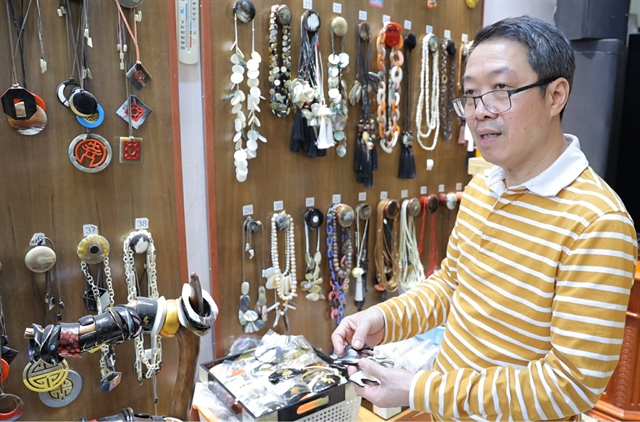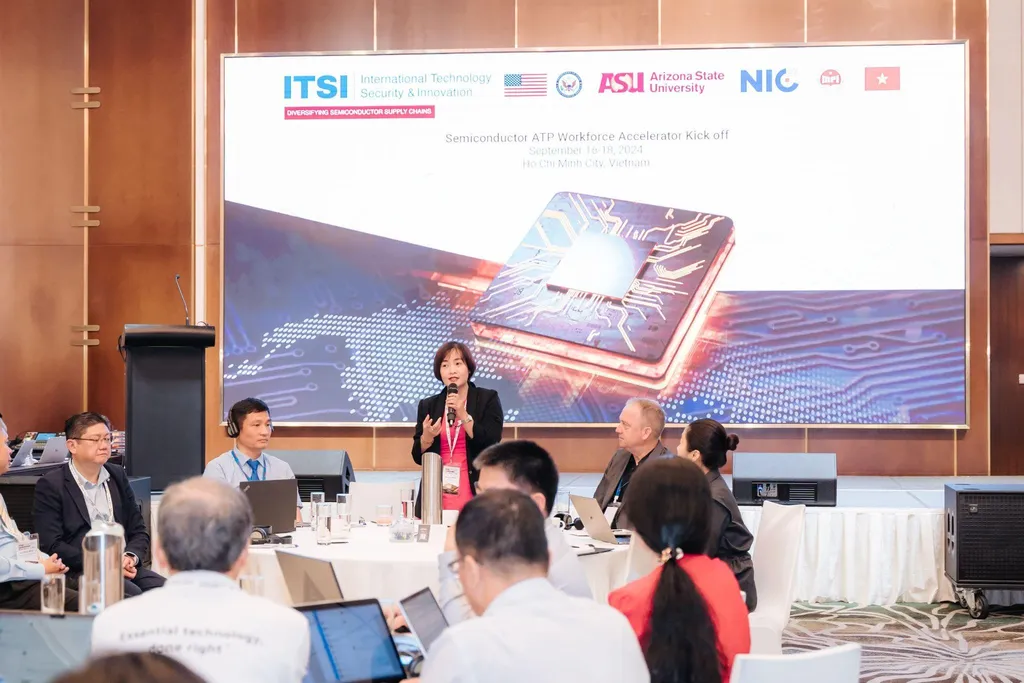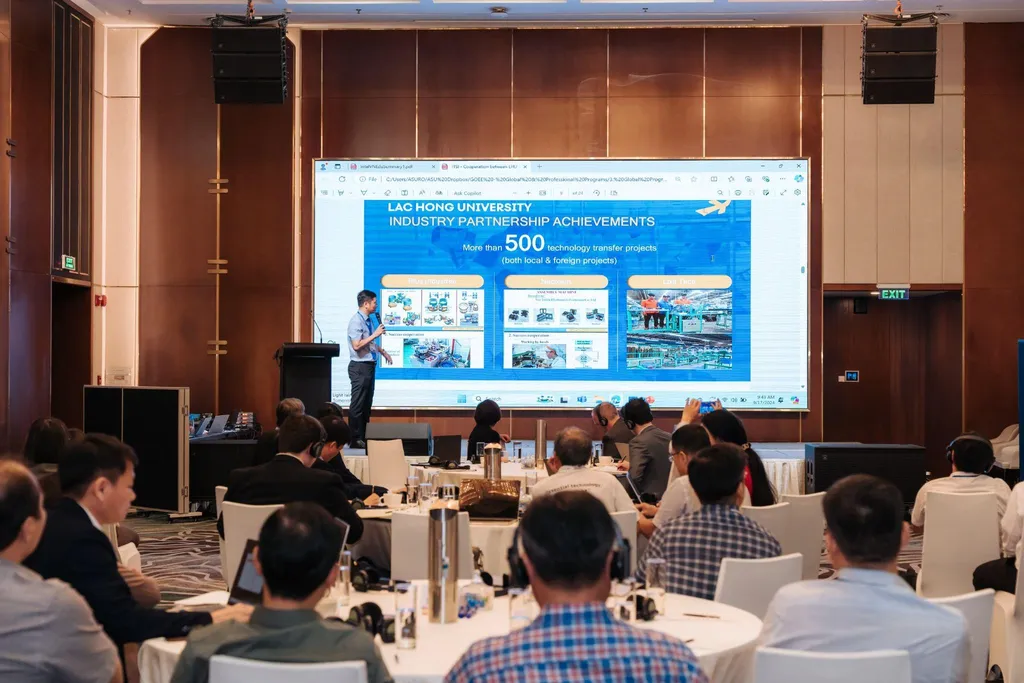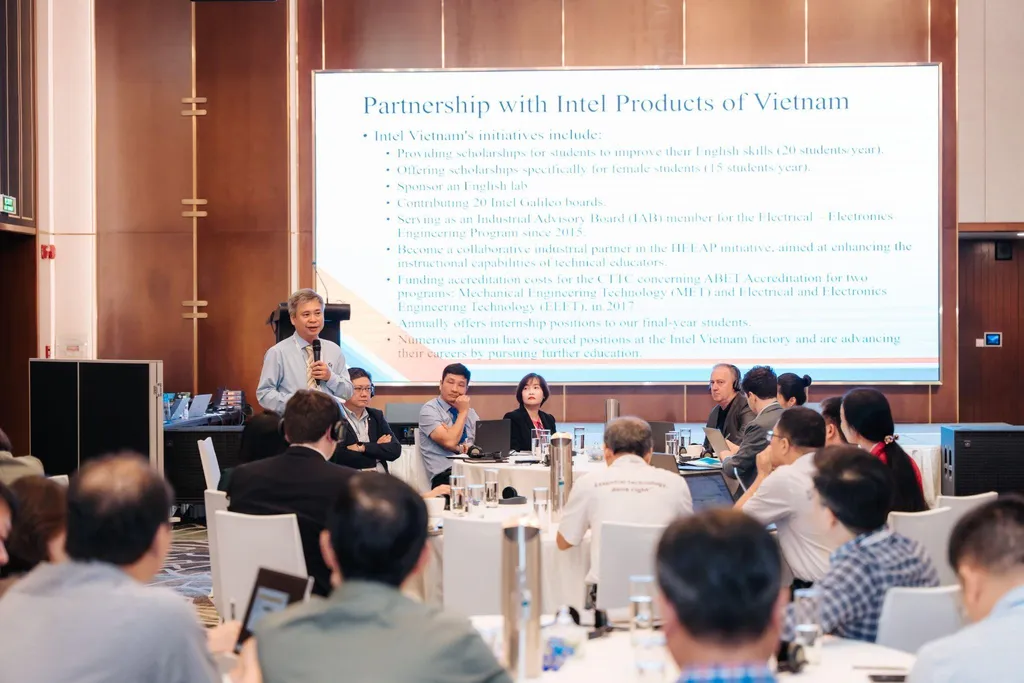 advertisement
advertisement

A series of specialised workshops, part of the 'Semiconductor ATP Workforce Accelerator Programme,' was organised in Ho Chi Minh City from Sept. 16 to 18. The three-day event served as a platform for collaboration between U.S. partners and Vietnamese educational institutions.
Associate Vice Provost and ITSI Principal Investigator Jeffrey Goss led the opening session titled 'Building Academia-Industry Partnerships for Sustainable Semiconductor Ecosystem Development.'
The workshop outlined collaboration methods between businesses and academic institutions, aiming to create a mutually supportive ecosystem to ensure long-term growth.
 |
| The workshop served as a platform for participants to explore innovative strategies that could foster progress within these critical relationships |
Through in-depth research, participants gained a clear understanding of how such ecosystems operate and how cooperation between stakeholders can be enhanced. Attendees also learned about practical models and the benefits arising from academia-industry partnerships.
 |
| Several leading Vietnamese institutions participated in the session |
Following the workshop, Dr John W. Fowler, Motorola Professor of International Management at the W.P. Carey School of Business, Arizona State University, conducted a session titled “The Challenge to Cultivate Global Semiconductor Talent”.
It focused on the challenges and opportunities involved in developing the specialised skills needed to meet market demands. Attendees gained valuable insights into effective workforce development strategies, international collaboration, and the role of education and training in sustaining the growth of the semiconductor industry.
Before concluding the morning sessions, there was a workshop titled “Adapting Global Semiconductor Talent Cultivation Practices to Vietnam”, which addressed key areas such as curriculum modernisation, building partnerships between education and industry, and developing public-private initiatives to strengthen the semiconductor workforce in Vietnam.
 |
| Top companies also engaged in discussions regarding specific demands for engineers, technicians and scientists |
Within the framework of the International Technology Security and Innovation Fund (ITSI Fund), established under the 2022 CHIPS Act, the United States will collaborate with Vietnam to significantly develop the country's ecosystem, regulatory framework, workforce, and current infrastructure needs.
This partnership aims to enhance the capabilities of Vietnam's semiconductor ecosystem while simultaneously supporting the U.S. industry.
Organised by Arizona State University (ASU), the sessions brought together key stakeholders, including leaders from the Ministry of Planning and Investment (MPI), the Ministry of Information and Communications (MIC), the Ministry of Education and Training (MOET), the Ministry of Science and Technology (MOST), the Ministry of Labour, Invalids and Social Affairs (MOLISA), the National Innovation Centre (NIC), local government officials, ATP industry leaders, and academic representatives from top engineering and technology universities and vocational colleges. The goal was to identify Vietnam's strengths and challenges in the semiconductor sector and formulate action plans to enhance its capabilities.